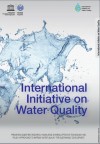Water Scarcity and Quality

The planet’s freshwater resources, if managed sustainably and effectively, can meet water demands of the world’s growing population with good quality water. However, water scarcity and water quality degradation present major challenges in securing enough water of good quality to meet human, environmental, social and economic needs to support sustainable development of countries. The widespread water quality degradation across the world is the most serious water problem, threatening human health and ecosystems’ integrity, but also representing a major concern for the water resources sustainability. New water quality challenges such as emerging pollutants and safe wastewater reuse bring even greater concerns, calling for urgent attention.
This theme focuses on the protection of the world’s freshwater resources to reduce impacts on human well-being and the natural environment. Activities under the theme aim to protect the water resources from pollution, enhance and restore water quality, conserve water and use water efficiently. Related International Hydrological Programme (IHP) programmes and projects include UNESCO-IHP International Initiative on Water Quality (IIWQ), Global Network on Water and Development Information for Arid Lands (G-WADI), International Drought Initiative (IDI) and the major UNESCO Project on Emerging Pollutants in Water and Wastewater.
Water scarcity is a natural as well as a human-induced phenomenon. For many countries, water scarcity represents the most pressing challenge to socio-economic and human development at large. Water scarcity due to over-use and the uneven distribution of water resources in both time and space, coupled with the growing water pollution, is becoming a growing concern. There is no global water scarcity as such, but a number of localities and regions in the world are short of water due to the fact that worldwide water use is growing at more than twice the rate of population increase in the last century. In addition, climate change exacerbates water scarcity, especially in arid and semi-arid zones, which are already water-stressed.
Water quality, due to its serious human health and environmental impacts, represent a crucial but often neglected aspect of water resources management. Primary causes of water pollution are rapid urbanization, increased agricultural activities, use of fertilizers and pesticides, land degradation and deforestation, and the lack of adequate wastewater treatment and disposal. Poor water quality not only negatively affects human health and ecosystems in multiple ways, but also makes water unfit for different uses and purposes and hence reduces the water resources availability. Consequently, water pollution is also becoming one of the greatest threats to freshwater availability and re-use. As water treatment technologies are often expensive, wastewater management is inadequate or inexistent in most developing countries. Urgent action is needed to improve water quality and wastewater management. IHP makes a significant contribution to understanding and effectively managing water quality through activities focusing on issues both in developing and developed countries.
Objectives of the theme include: strengthening the knowledge base on the quantity and quality of the world’s water resources; promoting catchment-based water resources management and planning; predicting and planning for water scarcity; improving the understanding and management of water quality; integrating quality-quantity management and science-based decision-making, enhancing legal, policy and institutional frameworks for improved water quality management, and promoting new innovative tools for water quality management and pollution control.
The UNESCO-IHP work on the implementation of IHP-VIII theme 3 “Addressing water scarcity and quality” is organized under five focal areas as presented below.
Focal Areas
For more information on each Focal Area and related activities, please follow the links below:
- Focal area 3.1: Improving governance, planning, management, allocation, and efficient use of water resources
- Focal area 3.2: Dealing with present water scarcity and developing foresight to prevent undesirable trends
- Focal area 3.3: Promoting tools for stakeholders involvement and awareness and conflict resolution
- Focal area 3.4: Addressing water quality and pollution issues within an IWRM framework - improving legal, policy, institutional, and human capacity
- Focal area 3.5: Promoting innovative tools for safety of water supplies and controlling pollution







